NIL
Womens sports is booming. Can it continue ethically?
It seems you can’t look anywhere without hearing about the growth and profitability of women’s sports. The refrain has gone from “no one watches women’s sports” to “everyone watches women’s sports” in a matter of just a few years. For longtime fans of women’s basketball, women’s soccer and women’s hockey, the meteoric growth of leagues […]
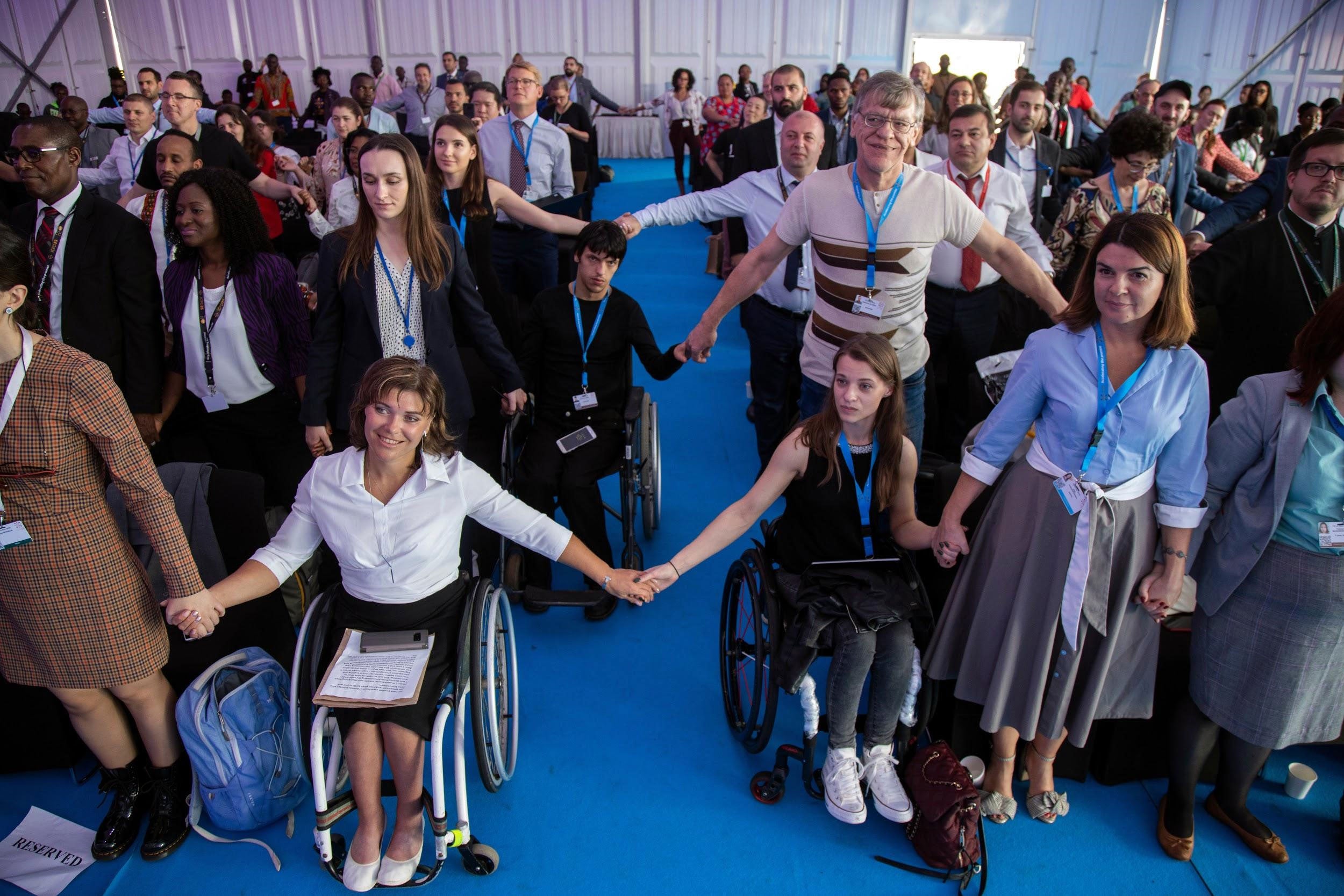
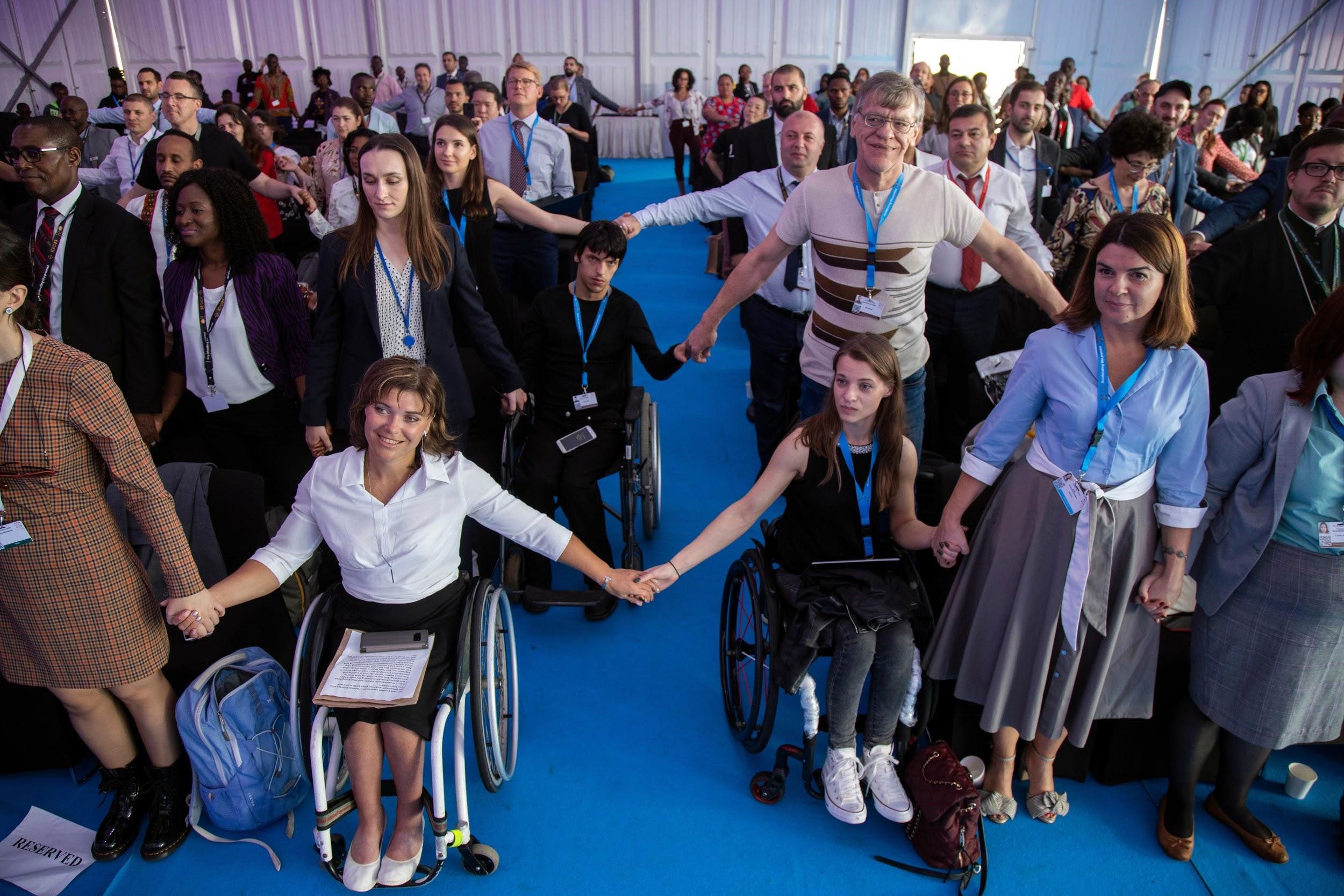
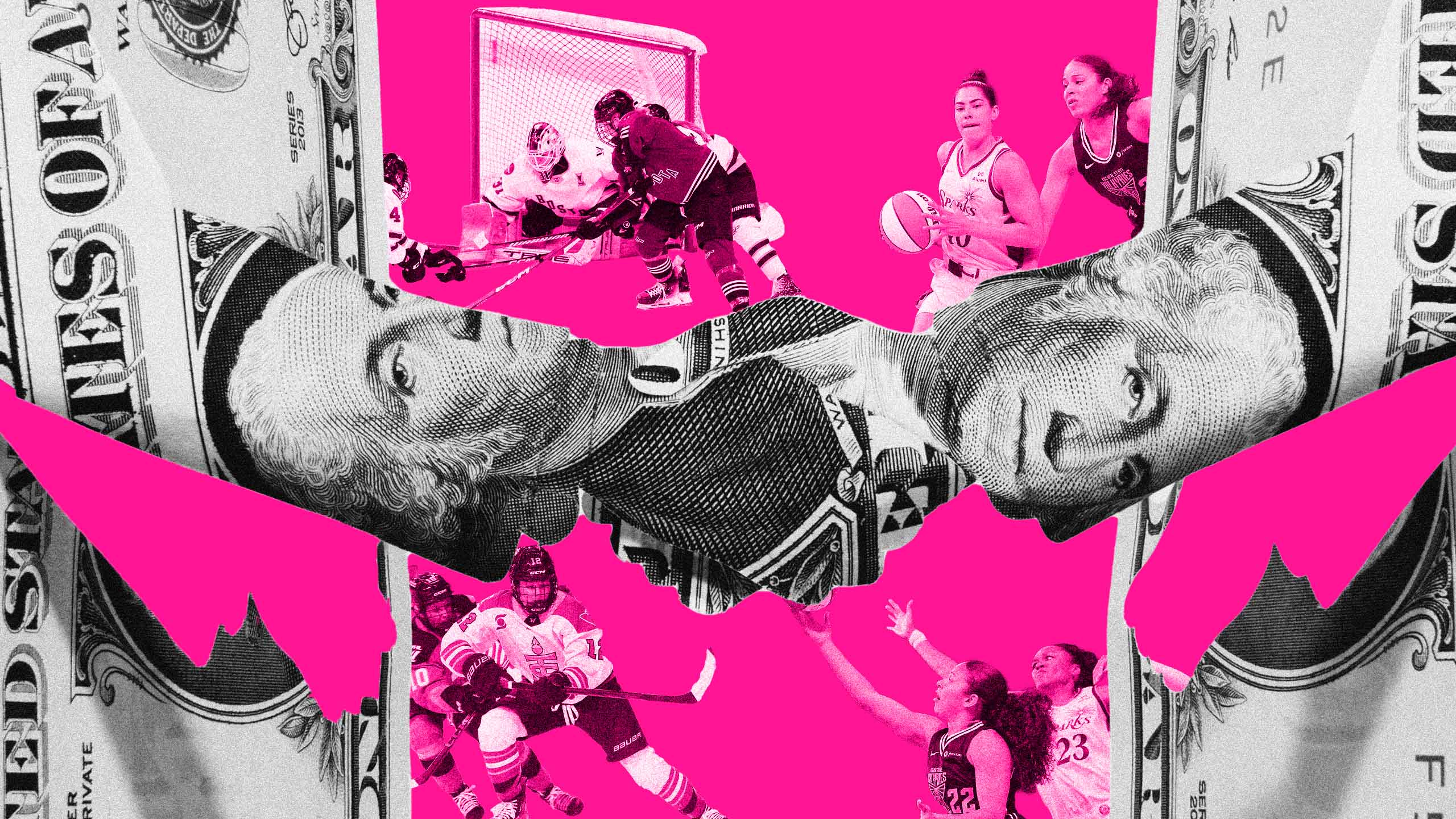
It seems you can’t look anywhere without hearing about the growth and profitability of women’s sports. The refrain has gone from “no one watches women’s sports” to “everyone watches women’s sports” in a matter of just a few years. For longtime fans of women’s basketball, women’s soccer and women’s hockey, the meteoric growth of leagues like the Women’s National Basketball Association (WNBA), National Women’s Soccer League (NWSL) and Professional Women’s Hockey League (PWHL) can feel exciting. But with all this growth comes more complicated feelings too.
The argument for investing in women’s sports often falls along capitalist lines such as “there’s money to be made here, and it would be unwise to pass it up.” A new report from Deloitte estimates that global revenue generated by elite women’s sports will exceed £1.8 billion (approximately $3.3 billion in Canadian dollars) in 2025. With investment opportunities increasing exponentially, women’s pro sports leagues are signing sponsorship deals with major companies left and right. However, which brands these leagues are choosing to partner with now that there is money available is increasingly at odds with the presumably progressive values these leagues have been perceived to have by long-time fans.
The WNBA players, in particular, have made a name for themselves with their commitment to racial justice activism and social justice advocacy cause that they dedicate each season to (there is even a documentary about their activism, called Power of the Dream). In women’s soccer, the U.S. Women’s National Team’s fight for equal pay often transfers to perceptions of the NWSL because many of the same players are represented. Even though those values and actions come from the players themselves, the public perception often applies those views to the leagues as a whole. In the public sphere, the distinction between the league (a corporation with its own interests in mind) and the players (individual workers with their own views) is often flattened.
Take, for example, the WNBA, whose season starts this week. It will be the league’s most talked-about season since its launch nearly 30 years ago. With a brand-new team in the Golden State Valkyries and Canadian expansion set for 2026 with the Toronto Tempo, all eyes are on the W and everyone wants a piece of the pie. Their partnership with Amazon Prime to stream games is continuing this season, with 25 games streaming on the platform. The WNBA isn’t the only league with an Amazon partnership either. The NWSL also streams games on Prime.
But the NWSL’s partnership with Amazon is baffling when you consider that it is a league currently in the process of a rebrand following their disturbing sexual abuse scandal and continued and ongoing workplace harassment crisis. Not only that, but the league has leaned heavily on lip service around progressive values in order to change the public’s perception of it and has benefitted mightily from that strategy.
“Why would a league that is being heralded as “a beacon of social and political activism” think that partnering with Amazon would align with its values?”
“Under [Commissioner Jessica] Berman’s leadership … the NWSL has become a sporting beacon of social and political activism,” a 2024 report from SportsPro explained data from Luscid, a platform that tracks sport and entertainment data, measured “the league’s key marketing strengths”—which included “community impact”—and cited Amazon as one of the blue-chip companies the league has signed recently. These new partnerships moved the total annual value of the NWSL’s portfolio to over $24.5 million—a fourfold increase from 2021.
But why would a league that is being heralded as “a beacon of social and political activism” think that partnering with Amazon would align with its values? Amazon is well known to be a company that, among other things, exploits workers, puts them in unsafe working conditions, helps fund ICE, has a terrible environmental record and is single-handedly responsible for killing bookstores. Perhaps for the same reason they thought their new partnership with Alex Cooper’s Unwell Hydration drink was a good idea? Cooper, the host of the popular Call Her Daddy podcast, is a former employee of Barstool Sports and has done little to distance herself or her brand from Barstool’s toxic and offensive content in the years since she left the company. Not only that, her Unwell Hydration beverage is a Nestlé product, which is currently the subject of multiple boycotts for reasons that include political, environmental and human rights concerns. In Canada, the company faces boycotts from the Council of Canadians and the indigenous rights organization Lakota People’s Law Project for extracting water from watersheds that have recently seen droughts. All of the leagues have at least one official partnership with a company that is on the Boycott, Divest and Sanction (BDS) list.
Or take the glut of weight-loss drug ads that permeate women’s sporting events. During the PWHL’s “Takeover Tour,” in which the league travelled to host cities who don’t have their own teams in order to promote the game, ads for Wegovy could be seen on in-game monitors. The WNBA’s Minnesota Lynx have a partnership with the weight-loss program Livea and the Indiana Fever have an Eli Lilly patch on their uniforms (Eli Lilly is the company that produces the GLP-1s Mounjaro and Zepbound). These drugs, when advertised to treat “obesity” as the presenting problem, can promote fatphobic and dangerous body image ideals—especially for the young girls watching at home, who represent the fastest-growing fan demographic.
Even the rash of new beauty campaigns is not without concern. As makeup companies like Sephora sign partnerships with Unrivaled, the off-season women’s basketball league, and WNBA teams like the Toronto Tempo, Fenty Beauty becomes the official sponsor of the WNBA’s New York Liberty and Maybelline Cosmetics partners with the new Women’s Lacrosse League, centuries-old anxieties about women athletes and femininity are reinforced. Masculine-of-centre athletes get far fewer endorsements and brand deals, reinforcing oppressive hierarchies and income disparities, as well as perpetuating queerphobia.
The financial consequences of these regressive beauty standards would be concerning enough on their own, but in a time of increased “transvestigations” of women athletes, the focus on platforming traditionally feminine athletes is far more insidious than it may first appear. Trans women and girls are increasingly being viewed as a threat to not only women’s sports, but to the safety and security of cis women as a whole, which is quietly reinforced by the focus on these highly feminized beauty campaigns.
It’s also insidious because brands are capitalizing on a highly motivated and incredibly trusting market in women’s sports fans. Research has found that WNBA and women’s sports can “enhance a brand’s image by demonstrating its commitment to social responsibility, gender equality and empowerment.” When a company advertises with one of these leagues, those values become associated with their brand, too. Nielsen’s Fan Insights found that 44 percent of WNBA fans have visited a brand’s website after seeing WNBA sponsorships during a game and 28 percent have bought from a sponsoring brand. Ads aired during the 2024 WNBA regular season through the end of May were a remarkable 26 percent more likely to spark consumer engagement than the 2023 WNBA season average. And women athletes are far more likely to convert buyers than their male counterparts, with a recent study revealing that U.S. consumers are more likely to purchase sports tech products from Caitlin Clark, Simone Biles and Serena Williams over comparable male athletes.
And yet, sponsorships and endorsements, which are only really given to the most elite teams and athletes, inevitably worsen systemic inequalities like sexism, racism, transphobia, classism and ableism. “Just as in men’s sport and wider society, it is the ‘ruling elite’ who control elite, competitive, commercialized sport, that stand to gain the most when growth is the primary objective,” Evie Ashton wrote in the It’s Just a Game newsletter. “When elite sport makes more money, financial brokers, shareholders, wealthy top executives, conservative politicians and upper-middle class people extend their power.”
The evidence for this can be seen in the names who are buying into pro women’s teams. Last season, Julia Koch, an American socialite who is one of the richest women in the world, and her son, David, Jr., bought a 15 percent stake in the WNBA’s New York Liberty. The move to sell part of the team to the Koch family raised eyebrows among fans, some of whom launched a petition asking Koch to donate $15 million of her own money to causes supported by WNBA players. The petition was started by the group behind Althea’s, the queer women’s sports bar in Brooklyn,, which is set to open in late spring.
WNBA players care about who they play for and who represents them—the WNBA’s social justice initiative for the 2024 season involves reproductive justice and civic engagement. The Kochs have a long history of making donations to political candidates that often work against these interests, donating exclusively to Republican candidates. Meanwhile, the NWSL team Angel City FC, which made its name being a majority-women-owned club, was sold to Disney CEO Bob Iger.
“The men’s pro sports model didn’t rise out of a neutral condition; it owes its success to empire and oppressive conditions which were explicitly designed to sustain it and which are protected by the most powerful people in society,” Zoë Hayden wrote at The Victory Press in 2019. “Women’s sports … were not meant to succeed under these conditions, and in an attempt to do so, they both intentionally and unintentionally align themselves with empire and with capitalism instead of trying to change the conditions themselves.” As a result, women’s sports leagues come to reinforce oppression rather than becoming the forces for social, political and cultural justice that they have the potential to be.”
All of this raises larger questions around whether women’s sports finding mainstream success is at odds with the stated values of its players—and its fans. At the same time, it’s a double-edged sword: true equality means not expecting more from a women’s league than we would from a men’s league, and these aren’t questions that men’s leagues are expected to be able to answer. But doesn’t progress look like trying to make a better future for the multiply-marginalized athletes and fans who have built women’s sports into the juggernaut they are today?
These are questions that will plague these women’s leagues as they continue to grow. The answers will determine what kind of future women’s sports wants to have for itself, but I fear that future may not be an equitable one.
NIL
Ohio State football team loses out on big-time five-star recruit
The Ohio State football program has been trying to beef up its 2026 recruiting class as the summer continues. They continue to try to land some of the biggest recruits left on the board, despite some lacking NIL plans. The Buckeyes had the fifth-best recruiting class heading into Sunday. Five-star linebacker Xavier Griffin made his […]
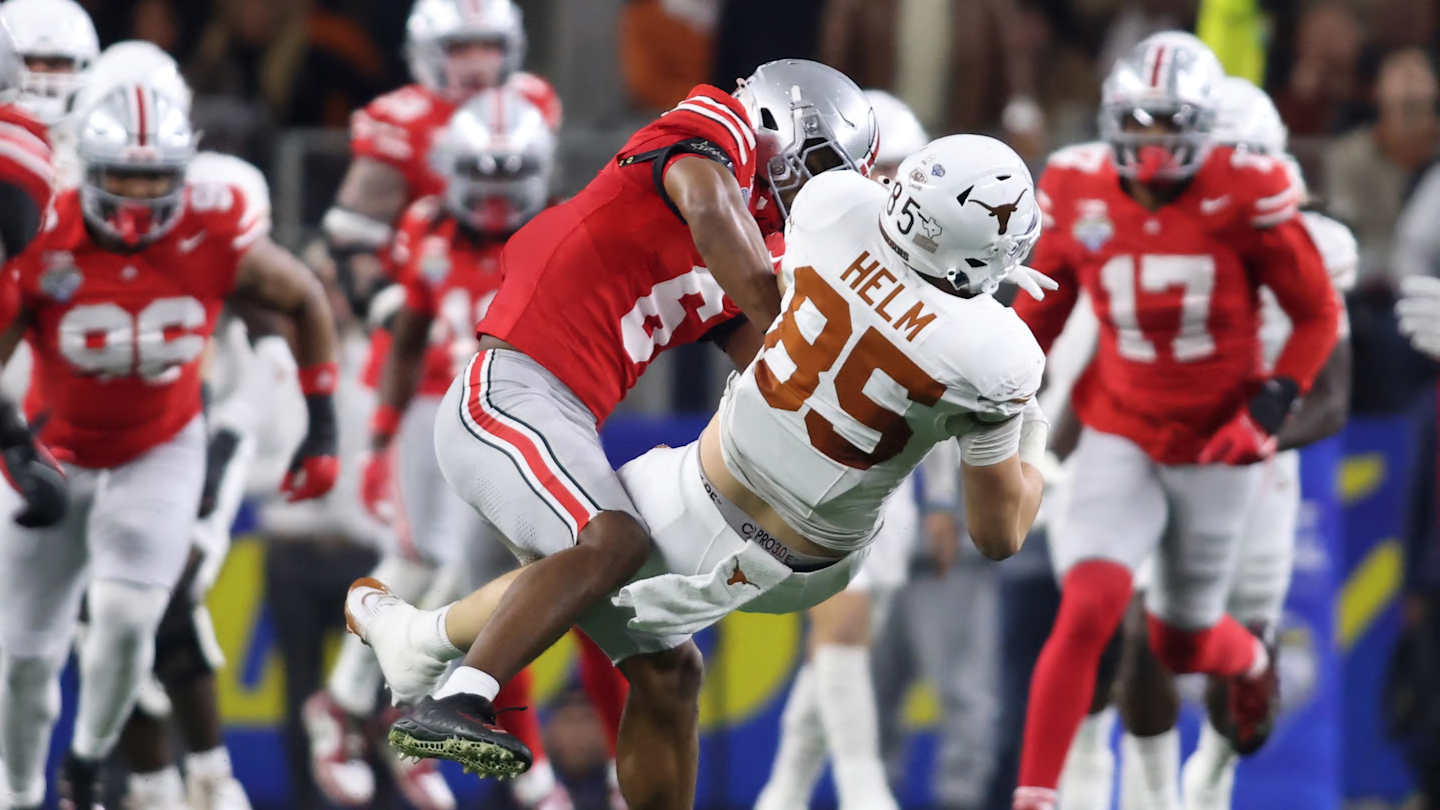
The Ohio State football program has been trying to beef up its 2026 recruiting class as the summer continues. They continue to try to land some of the biggest recruits left on the board, despite some lacking NIL plans. The Buckeyes had the fifth-best recruiting class heading into Sunday.
Five-star linebacker Xavier Griffin made his recruiting decision on Sunday afternoon. He was choosing between the Buckeyes, Texas, Alabama, and Florida State. Heading into the day, he was an Alabama lean, but Ohio State was hoping they did enough late to grab him.
Griffin is listed as the second-best linebacker in the country. He stands at 6’3 and 200 pounds and is from Gainesville, Georgia. Ohio State was the only northern team that he had in his final list of schools. That was always going to be hard to overcome. In the end, it was too much to overcome.
The Ohio State football team loses out on five-star linebacker Xavier Griffin
Instead of picking the Buckeyes, Griffin decided to commit to Alabama. The Crimson Tide were the favorites to land him, so they ended up with him anyway. Ohio State would have loved to have gotten Griffin, but they weren’t expecting to land him, nonetheless.
If the Buckeyes are going to land another five-star recruit in this class, they would prefer it to be Felix Ojo, the second-ranked tackle in the country. Even though he had a bad day during a recent Rivals camp, he is still good enough that he could start day one if they needed him to.
James Laurinaitis has done enough recruiting in the last couple of years to know that he certainly can recruit at an elite level. Losing out on one recruit isn’t the worst thing in the world. He landed a five-star recruit just last year.
NIL
Louisville Basketball gets great news from NCAA to cap off tremendous offseason
Throughout the college basketball offseason, one major storyline to watch has been the NCAA’s waiver process for select players. Just a few days ago, the NCAA denied a waiver for Memphis center Dain Dainja to get another year, which forced him to move on to the pros. Earlier this offseason, the NCAA had already denied […]
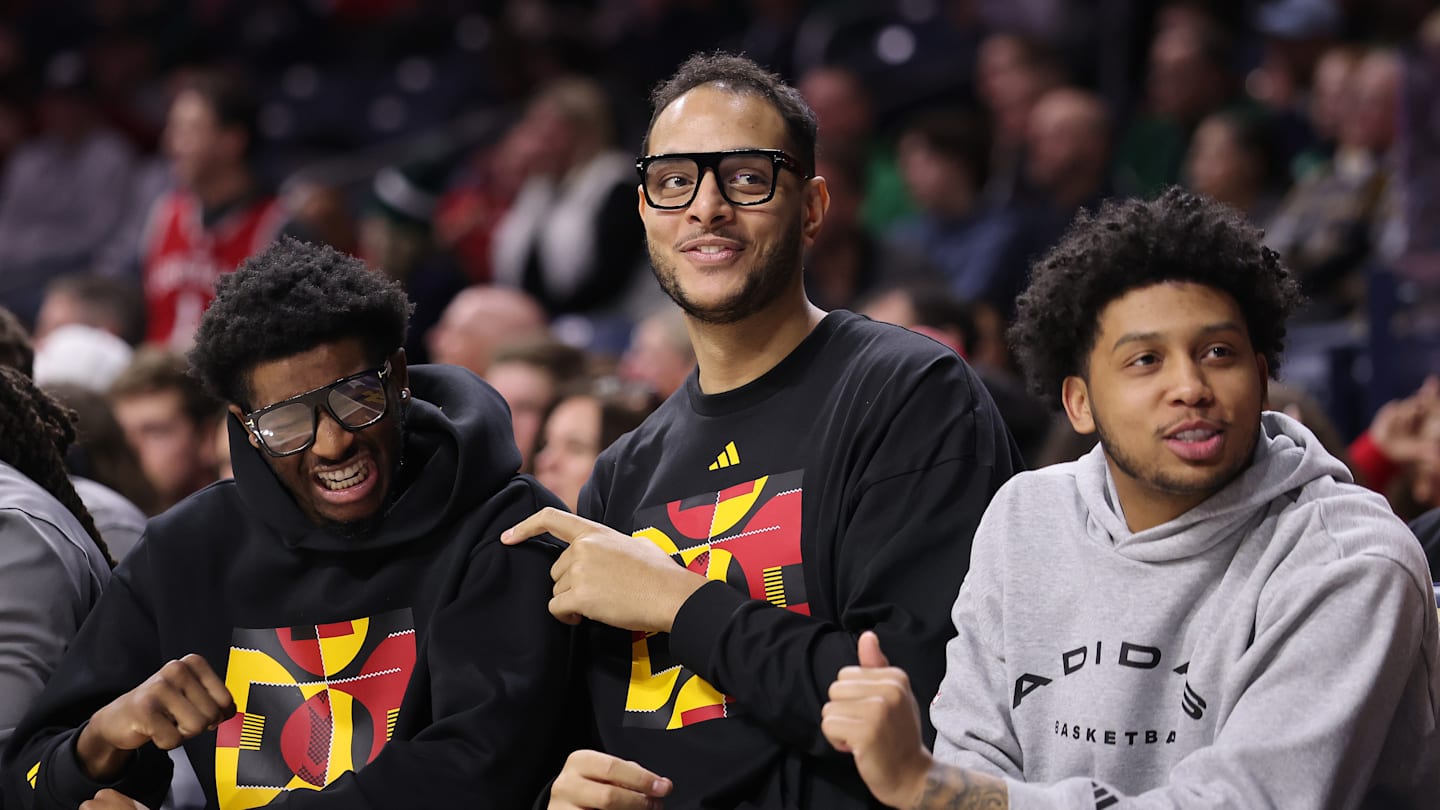
Throughout the college basketball offseason, one major storyline to watch has been the NCAA’s waiver process for select players. Just a few days ago, the NCAA denied a waiver for Memphis center Dain Dainja to get another year, which forced him to move on to the pros.
Earlier this offseason, the NCAA had already denied a waiver to Louisville forward Aly Khalifa. This was originally a surprise, as he had redshirted this past season after transferring from BYU. However, reportedly, having already taken a redshirt year at Charlotte previously caused issues with his eligibility.
The good news for the Cardinals is that, following an appeal of the original denial, the NCAA reversed its decision.
Could not have happened to a better person. The NCAA and the appeal committee did the right thing for this young man. Aly Khalifa’s amazing story and journey continues…and will inspire thousands! https://t.co/l3zTBaPEFc
— Pat Kelsey (@patkelsey) June 27, 2025
Louisville is a consensus preseason top-25 team, thanks in part to a great transfer portal haul that includes Isaac McKneely and Ryan Conwell. 5-star prospect Mikel Brown Jr. is set to run the offense, while Kasean Pryor returns after suffering a season-ending injury.
The hope is that Khalifa will be the missing link to make the offense as good as possible. He’s one of the best passing big men in the country, and when he was at BYU, he played a key role in their elite offense, averaging 4.0 assists per game as a big man.
Khalifa and Pryor are the leading bigs for the Cardinals next season. Joining them in the frontcourt are a trio of international prospects, including Vanglis Zougris, Sanada Fru, and Mouhamaed Camara. If any of them break out into key contributors, then this team will be a contender to compete for another ACC title.
Khalifa’s stats don’t scream “all-league” on paper, but that won’t be his role. He gives the team another facilitator and takes pressure off the freshman Brown on the offense, which may be the biggest beneficiary. This news caps off what has been a great offseason for Coach Pat Kelsey and the Cardinals.
NIL
The College Basketball regular season is expanding to 32 games
More changes are coming to men’s and women’s college basketball. Over the past few months, multiple changes have occurred in college basketball, including the landmark revenue-sharing programs that will begin in July. Federal Judge Claudia Wilken approved the House v. NCAA settlement at the beginning of June. It allows schools to directly pay athletes from […]
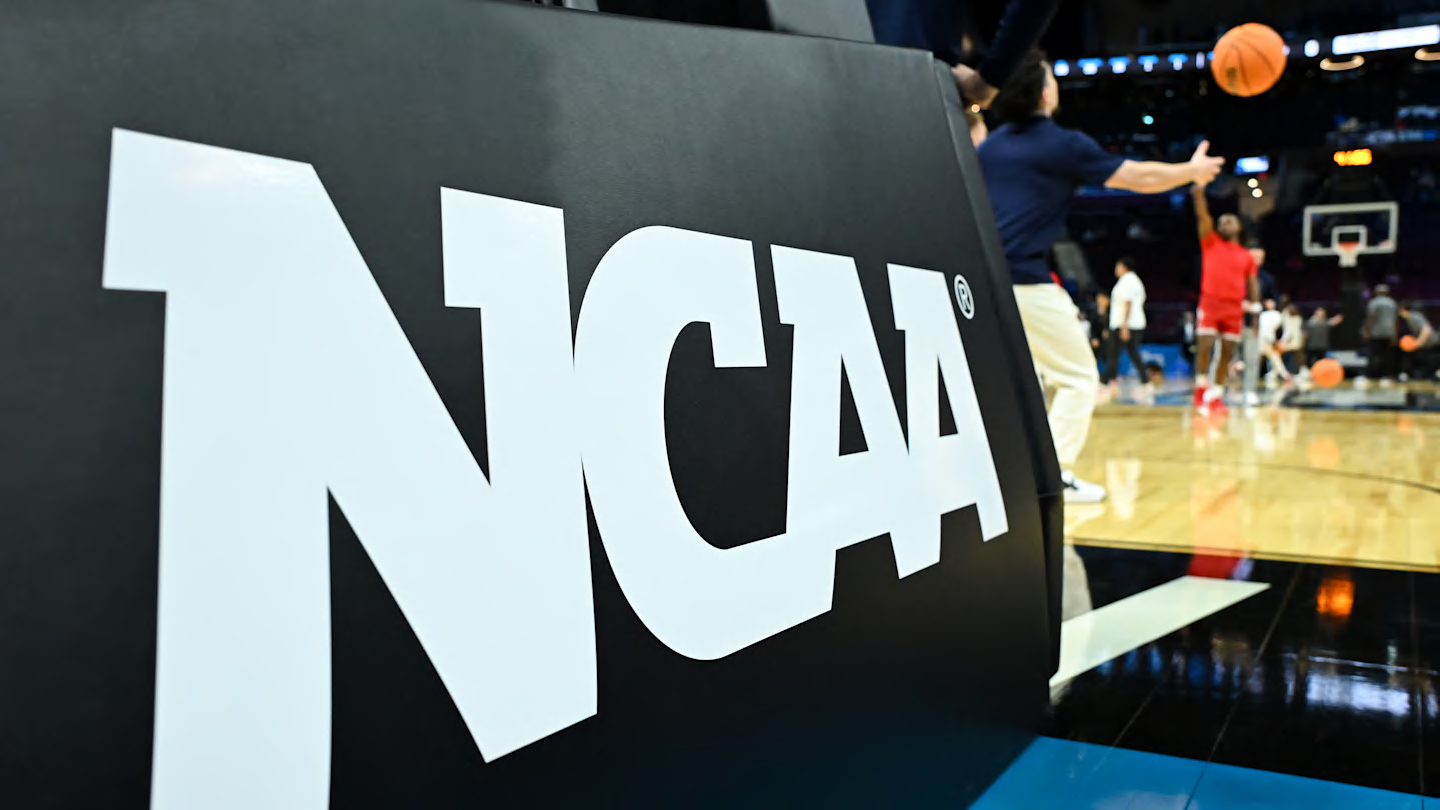
More changes are coming to men’s and women’s college basketball. Over the past few months, multiple changes have occurred in college basketball, including the landmark revenue-sharing programs that will begin in July.
Federal Judge Claudia Wilken approved the House v. NCAA settlement at the beginning of June. It allows schools to directly pay athletes from a revenue-sharing pool capped at $20.5 million for the 2025-2026 season.
The bulk of the money will be divided among men’s and women’s basketball, football, and wrestling, with the cap projected to increase every year.
In response, the four major sports formed “Flight Funds” programs as a charitable avenue for donors to give directly to the programs or a general fund.
In addition to the revenue-sharing programs, an NCAA oversight committee made multiple changes to men’s college basketball, focusing on the pace of play.
The rule changes that were put in place include adding a coach’s challenge that can be used at any point during the game in response to an out-of-bounds call, basket interference, goaltending, or a player in the restricted area.
After the new rules were put in place, the NCAA Division I Council also approved a regular season game expansion.
NEWS: The College basketball regular season is expanding to a 32-game limit, @MattNorlander reports
Teams will not be required to, but the move allows programs to schedule more nonconference games starting in the 2026-27 season.https://t.co/sU1GXsVRue pic.twitter.com/pAmG0vJTOy
— On3 (@On3sports) June 25, 2025
CBS Sports’ Matt Norlander reports that a committee approved expanding the regular season from 31 to 32 games, beginning in the 2026-2027 season. The move was made to encourage teams to schedule better non-conference games later in the season.
The expansion ends a 19-year span of a 31-game maximum for the regular season.
Starting in the 2026-2027 season, teams can schedule an extra game, but they will not be forced to do so. Most teams are expected to increase their schedule to the new 32-game maximum.
The extra game allows teams to play a better opponent later in the season and potentially add more highly-ranked Quad wins to their NCAA Tournament resume.
Norlander notes that money is a big driving factor for the 32-game maximum. With more games comes more revenue, which can be used to pay athletes.
More Hawkeyes News:
NIL
Latest I’m hearing on 5-star EDGE Trenton Henderson
Here’s the latest of what I’m hearing on Trenton Henderson: LSU has put together a significant NIL package that—to be as transparent as possible—the competitors weren’t willing to match. This is a fluid situation and lots can still happen. LSU feels confident in where it stands with Henderson in the final days, but it looks […]

Here’s the latest of what I’m hearing on Trenton Henderson:
LSU has put together a significant NIL package that—to be as transparent as possible—the competitors weren’t willing to match.
This is a fluid situation and lots can still happen. LSU feels confident in where it stands with Henderson in the final days, but it looks as if LSU will likely be the destination if this ages consistently.
Would be a massive blow.
NIL
Michigan Football Recruiting Heater Continues After $6M Donation
© Junfu Han / USA TODAY NETWORK via Imagn Images Audio By Carbonatix The Michigan football team is hot on the recruiting trail as the month of June comes to a close. The Wolverines have racked up more than a half-dozen commitments over the last week. Coincidentally, they received a massive $6 million pledge from […]

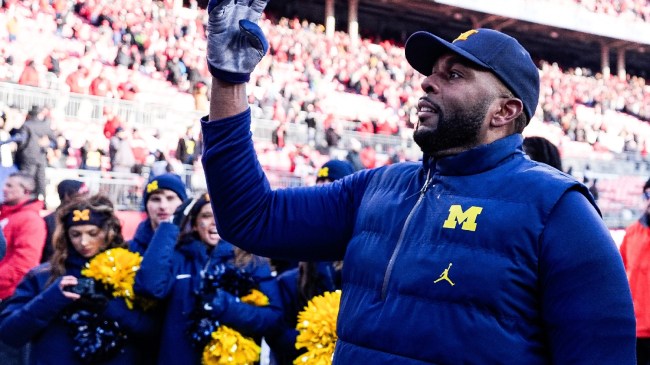
© Junfu Han / USA TODAY NETWORK via Imagn Images

Audio By Carbonatix
The Michigan football team is hot on the recruiting trail as the month of June comes to a close. The Wolverines have racked up more than a half-dozen commitments over the last week.
Coincidentally, they received a massive $6 million pledge from big time booster Matt Lester amid the heater. The program continues to flaunt its deep pockets while cashing in on the recruiting trail.
The donation came as a way to cover costs associated with the newly renovated and expanded football locker room. It was made as a way of recognizing the 2023 national championship team.
More on the gift and donor from MGoBlue.com:
Through Princeton Management, a real estate property management and development company, Matt [Lester] offers a summer internship program for U-M football student-athletes. He is also a founding member of the Champions Circle NIL collective specifically for football, and supports men’s and women’s basketball, swimming and diving, and women’s gymnastics through NIL.
Lester is a major donor. He’s also a founding member of the NIL collective that funds the football team’s payroll.
The Wolverines have been known to pay for top talent in the past. We’ll get to see an example of that investment in the 2025 college football season when freshman Bryce Underwood takes the field.
The school reportedly offered $12 million to land his commitment. It’ll hope to see it pay off with another title. More help is on the way in the 2026 recruiting class.
Michigan football is on a recruiting heater.
BREAKING: Five-Star EDGE Carter Meadows has Committed to Michigan, he tells me for @on3recruits
The 6’6 235 EDGE chose the Wolverines over Ohio State, Penn State, & South Carolina
“I thank God for guiding me through it all. I’M HOME. Go Blue!!
”https://t.co/vP9hIvX9sb pic.twitter.com/TaK4mGP9J6
— Hayes Fawcett (@Hayesfawcett3) June 29, 2025
Seven new players have committed to the program this week, headlined by five-star defensive pass rusher Carter Meadows. The Wolverines beat out the rival Buckeyes for that pledge.
The other six players include the top prospect in the state of Hawaii, the second-ranked players in Missouri and Massachusetts, and four-star Texas wideout Zion Robinson.
Michigan now holds commits from the:
-No. 1 recruit in Hawaii
-No. 1 recruit in Montana
-No. 2 recruit in Missouri
– No. 2 recruit in Massachusetts
– No. 4 recruit in IllinoisMeet the commits: https://t.co/S7Md7GZ3Eg pic.twitter.com/WKPAoUnHNy
— TheWolverine.com (@TheWolverineOn3) June 28, 2025
With the newest group in the bag, the Michigan ’26 class ranks ninth in all of college football. The investment into players and facilities is paying off in the recruiting rankings. They’ll hope to see similar results on the field.
NIL
BYU QB Jake Retzlaff to Enter Transfer Portal, Per Reports
BYU QB Jake Retzlaff to Enter Transfer Portal, Per Reports originally appeared on Athlon Sports. BYU quarterback Jake Retzlaff is planning to enter the transfer portal, according to ESPN’s Pete Thamel. Sources say he has informed several members of Kalani Satake’s coaching staff and Cougars players of his plan to leave. Advertisement Advertisement Advertisement This comes after Salt […]
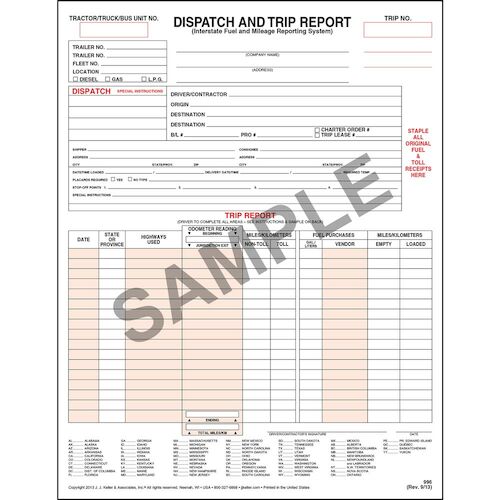


BYU QB Jake Retzlaff to Enter Transfer Portal, Per Reports originally appeared on Athlon Sports.
BYU quarterback Jake Retzlaff is planning to enter the transfer portal, according to ESPN’s Pete Thamel. Sources say he has informed several members of Kalani Satake’s coaching staff and Cougars players of his plan to leave.
Advertisement
This comes after Salt Lake Tribune’s Kevin Reynolds reported that Retzlaff was facing a seven-game suspension for violating BYU’s Honor Code tied to a civil lawsuit.
An attorney representing Retzlaff denied allegations that his client sexually assaulted a woman in 2023.
In response to a lawsuit in the Third Judicial District Court in Utah, Retzlaff’s lawyer issued a statement via a court filing on Friday. “Mr. Retzlaff specifically and categorically denies each and every and all allegations that he bit, raped or strangled [the woman], which are ridiculous and bizarre allegations, all of which are false and untrue.”
After the lawsuit was filed, BYU issued a statement saying, “The university takes any allegation very seriously, following all processes and guidelines mandated by Title IX.” However, they didn’t get into specifics on the situation. “Due to federal and university privacy laws and practices for students, the university will not be able to provide additional comment.”
Advertisement
Retzlaff enters his senior season after throwing for nearly 3,000 years and 20 touchdowns to 12 interceptions last year. BYU was one win away from their first Big 12 championship appearance.
Related: Ty Goettsche Opens Up About Five-Star QB Ryder Lyons, BYU’s Surge (Exclusive)
Sitake and offensive coordinator Aaron Roderick must prepare to move forward without Retzlaff. McCae Hillstead might be the next QB on the depth chart. The transfer from Utah State threw for 399 yards and four touchdowns during his freshman season. Treyson Bourguet and Bear Bachmeier will also compete for the starting job.
BYU opens the 2025 football season on Saturday, August 30 against Portland State.
This story was originally reported by Athlon Sports on Jun 29, 2025, where it first appeared.
-

 Motorsports2 weeks ago
Motorsports2 weeks agoNASCAR Weekend Preview: Autódromo Hermanos Rodríguez
-

 Motorsports3 weeks ago
Motorsports3 weeks agoNASCAR Through the Gears: Denny Hamlin has gas, a border needs crossing, and yes, that’s a Hemi
-
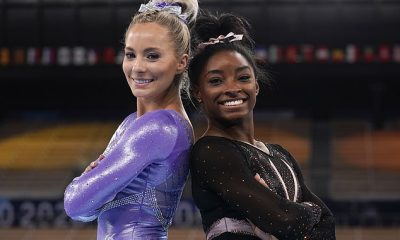
 Health2 weeks ago
Health2 weeks agoGymnast MyKayla Skinner Claims Simone Biles 'Belittled and Ostracized' Her amid Riley …
-
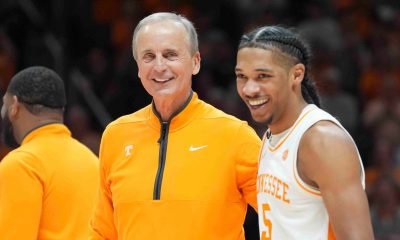
 NIL3 weeks ago
NIL3 weeks agoTennessee law supersedes NCAA eligibility rule
-

 Social Media2 weeks ago
Social Media2 weeks agoPune Athletes Make Global Mark at IRONMAN Hamburg and Brazil 2025
-

 Sports3 weeks ago
Sports3 weeks agoCoco Gauff, The World's Highest
-

 Motorsports2 weeks ago
Motorsports2 weeks agoNASCAR Race Today: Mexico City start times, schedule and how to watch live on TV
-
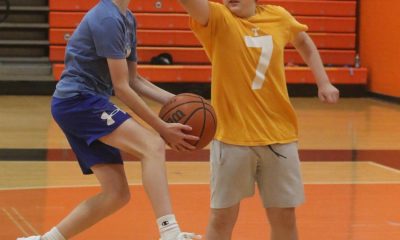
 Rec Sports3 weeks ago
Rec Sports3 weeks agoLaFollette Owls host youth basketball camp | Lafollette
-

 Health3 weeks ago
Health3 weeks agoOle Miss Ready for New Era of College Athletics
-
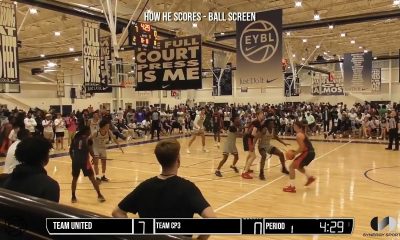
 College Sports2 weeks ago
College Sports2 weeks agoIU basketball recruiting













 all year long for the Twins!
all year long for the Twins!



















